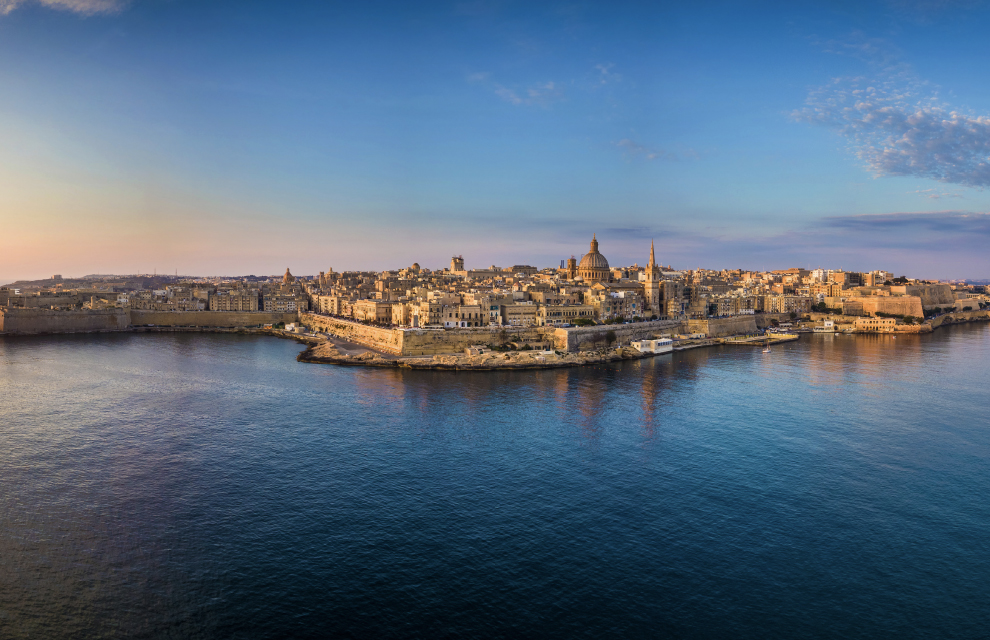Small in geographical stature, but strong in financial circles, Malta holds its own among other back office and asset servicing competitors, whose hubs lie on mainland Europe.
As Ramon Bondin, CEO at Dolfin Asset Services (Malta), explains: “As one of only two Commonwealth countries that are also members of the EU, Malta remains extremely well-placed compared to its competitors.”
Bondin adds: “The country has three key advantages: the first is a common language with the UK; the second is a respected legal framework, based on UK law, and the third advantage is a local workforce that is both experienced and highly-educated, yet relatively inexpensive.”
Just like other leading hubs for asset servicing, Malta’s financial hub, and in particular its financial capital, Valletta, is seeing a rise in the use of distributed ledger technology (DLT) and an enthusiasm for other innovative solutions, including blockchain.
As Anthony Charles, head of trading at Dolfin Asset Services (Malta), comments, in Malta, “there is an appetite for innovative solutions, especially those involving digital ledger technology”.
In the future, he predicts Malta will see “the introduction of custody services for crypto assets, subject to the introduction of a robust regulatory framework”.
“The infrastructure is very similar to that in use for traditional asset services and the government is keen to promote Malta as a pioneer in the blockchain technology field.”
However, Charles states the regulators remain cautious in their adoption of DLT in particular.
As an example, he states: “The ‘big bang’ implementation of the second Markets in Financial Instruments Directive has taken its toll on most in the sector.”
“It will take time to adjust to the new framework, especially with the new reporting requirements.”
Custody
Malta has also seen growth in its custody sphere. Dolfin, in particular, now offers a custody depositary in Malta as well as an execution brokerage and asset management service to private clients, financial advisers and institutional investors from both its London headquarters and its newly expanded office in Valletta.
The main beneficiaries are expected to be Malta-based collective investment schemes and trusts that need a local custodian or depositary.
Dolfin will also be able to offer its UK private clients the option of custodying their assets in Malta.
Dolfin’s Maltese unit, Dolfin Asset Services, also became a member of the Malta Stock Exchange (MSE) in October of this year. The firm’s membership allows Dolfin’s traders and clients in Malta direct access to Malta’s securities market, both in bonds and equities.
Technology and payments
Volante Technologies, a provider of software for accelerated end-to-end payments processing, has helped Valletta’s growing asset servicing offering by signing FIMBank Malta as the first customer for its newly launched cloud-based VolPay-as-a-service offering.
Volante will provide FIMBank with a managed service for processing Single Euro Payments Area payments in the cloud, powered by Volante’s VolPay suite of payments products, running on Microsoft Azure.
According to Volante, by leveraging Microsoft’s experience in cloud technology, it can now offer the most advanced payments capabilities as a resilient, scalable and highly secure service.
In addition, ACA Compliance Group has completed the acquisition of Cordium. ACA will incorporate Cordium’s compliance, cybersecurity and technology products and services into its existing offerings.
The completion of the acquisition will allow ACA to expand its products and services to include tax services, financial and regulatory reporting, Cordium’s regulatory hosting platform, and a post-Brexit EU office in Malta.
Brexit
Professional services firm PwC recently said that disruptions to the level of market access in financial services as a result of Brexit will leave “no ‘winners’”.
PwC’s report, released in March 2018, focused on the impact of the loss of mutual market access in financial services across the EU27 and the UK.
It predicted disruptions would be “economically costly” to the UK and remaining EU members, one of which is Malta. The disruptions aforementioned would incorporate “both gains and losses” economically across Europe.
PwC’s report further showed that while Frankfurt has emerged as the likely recipient of the largest amount of relocated activity (particularly from US and Japanese banks), a number of other cities have also been predicted to benefit.
However, it would be an exaggeration to claim the small financial hub in Valletta would take over from London’s firm position as a global leader of asset servicing, but the city does seem poised and prepared for most eventual outcomes.
As Charles affirms, Dolfin itself is preparing for Brexit. As he says, for now, there are no obvious effects on asset servicing, specifically.
But he asserts it is impossible to know what will happen with Brexit until it happens.
“For now, there is no obvious impact, certainly no direct exposure. That said, we have seen support services, especially those based in the UK, exercising precautionary measures by setting up parallel functions based in EU locations.”
“If and when Brexit happens, Malta is clearly well-placed to serve as a bridge between the EU and a post-Brexit Britain.”



